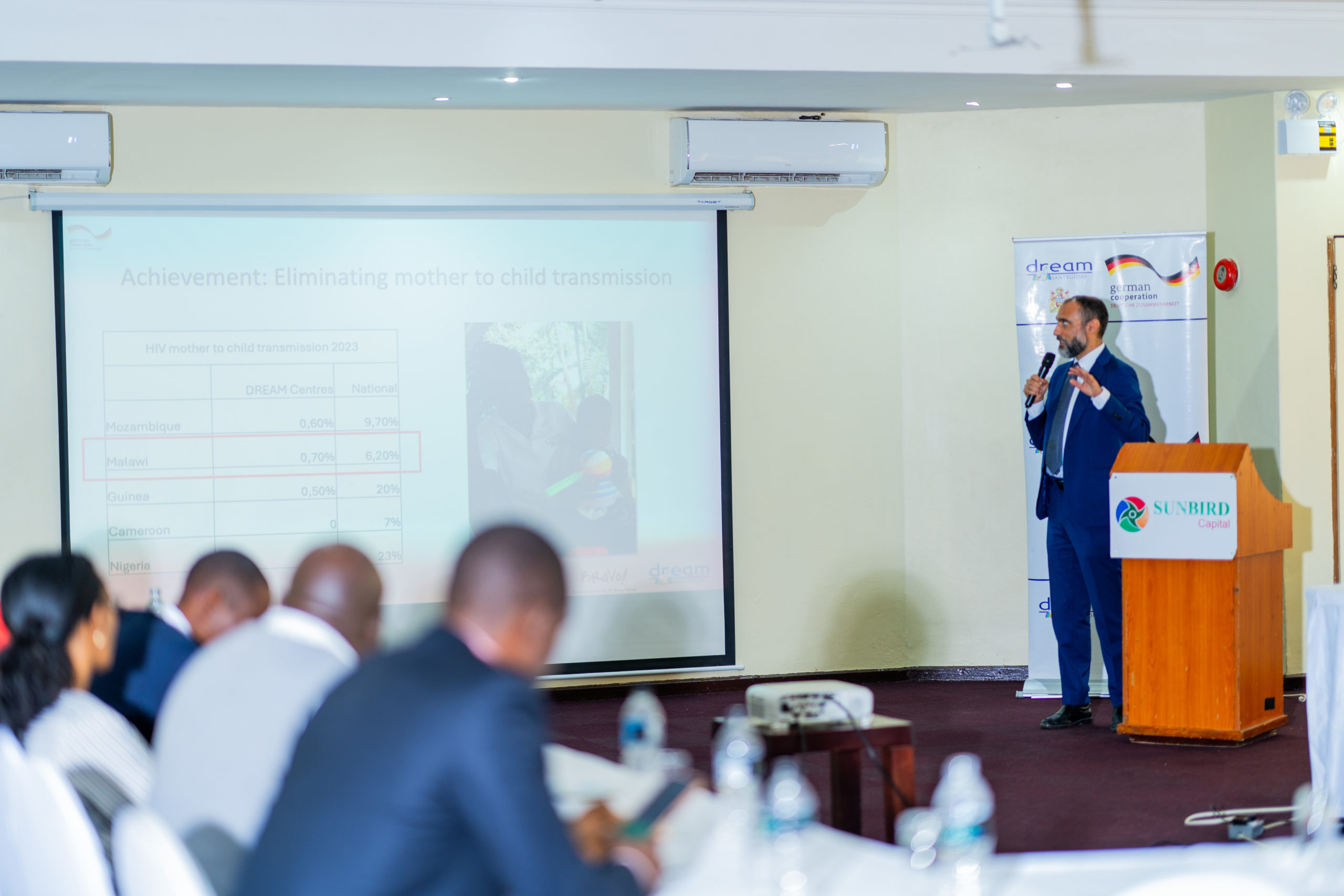Stakeholder conference in Lilongwe: a crucial event for strengthening the health system and civil registration in Malawi
As part of the project “Strengthening Access to Civil Registration and Healthcare in Malawi”, the stakeholder conference took place last week in Lilongwe.
The event provided an important opportunity to present the results achieved through this initiative, implemented by the DREAM Program of the Sant’Egidio Community in collaboration with the Peace and Development Trust, and funded by the Federal Ministry for Economic Cooperation and Development of Germany (BMZ). The project, active from 2022 to 2025, aims to improve the quality of healthcare services and ensure the right to identity for all citizens.
Adequate access to civil registration and healthcare is a fundamental human right. This is one of the cornerstones of the project, which focuses on strengthening both the civil registration system and access to medical care, with particular attention to infectious diseases and non-communicable diseases (NCDs).
In Malawi, very few children under five are registered. Registration with the Civil Registry Office is essential to guarantee minors recognition of their legal rights and access to state services. Without a birth certificate, many children cannot access healthcare, education, or legal protection. At the same time, Malawi faces one of the highest HIV prevalence rates in the world, with rates exceeding 16% in the southern regions. Although progress has been made in the prevention and treatment of HIV, healthcare facilities often fail to meet the needs of the population, especially concerning non-communicable diseases like hypertension, diabetes, epilepsy, and cervical cancer. The latter, primarily caused by the human papillomavirus (HPV), accounts for approximately 40% of all cancer cases in Malawian women.
During the conference, the main results achieved by the project over the past three and a half years were presented through six key interventions that highlighted the contributions of DREAM and BRAVO! to strengthening the healthcare system and civil registration in the country.
The project has surpassed many of the initial objectives, demonstrating its concrete impact on the Malawian population. Among the main achievements:
Cervical Cancer Screening:
- 12,861 women screened via VIA (Visual Inspection with Acetic Acid), compared to the target of 6,600.
- 2,303 women tested for HPV, against a target of 2,580.
Management of Epilepsy:
- 276 patients treated at the Kapeni and Mandala centers, compared to the target of 300, with a slight decrease due to a shortage of medication.
Awareness and Medical Services:
- 42 awareness sessions held (against the planned 30).
- 14,557 people reached (compared to the 7,500 target).
- 6,875 healthcare services provided during sessions, compared to a target of 800.
These figures demonstrate how the combined efforts of institutions, NGOs, and local communities are leading to significant change.
Despite the progress, some challenges remain:
- Ensuring continuity of treatment for patients with chronic diseases.
- Ensuring equitable access to healthcare services across Malawi.
- Improving civil registration strategies to guarantee the right to identity for all citizens.
The conference concluded with a strong commitment from Sant’Egidio, the Peace and Development Trust, and other stakeholders to continue collaborating with the Malawian government and the international community to further strengthen the health system and civil registration.
The DREAM and BRAVO! programs will continue their work to ensure that health and identity are rights accessible to all, contributing to the creation of a more inclusive and just Malawi.
